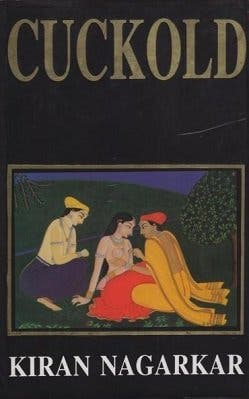Kiran Nagarkar, an Indian writer whose celebrated novels and plays addressed subjects like 16th-century Rajasthani royalty, the life of the working poor in Mumbai and religious fundamentalism, died on Sept. 5 in a hospital in Mumbai. He was 77.
His longtime partner, Tulsi Vatsal, said the cause was a cerebral hemorrhage.
In both English and his native language, Marathi, Mr. Nagarkar’s wordplay and the colorful characters he created left an indelible impression. His writing was bawdy, irreverent and joyous but also held up a mirror to uncomfortable truths. Mumbai, his birthplace, often served as the backdrop of his plots, and he was known for capturing that sprawling metropolis’s never-say-die spirit.
In 1974 he wrote the experimental novel “Saat Sakkam Trechalis” (“Seven Times Six Is Forty-Three”), his only book in Marathi. It followed the stream of consciousness of a young author waiting to gain recognition for his work, and today it is considered a landmark of Marathi, one of the 22 main languages of India, spoken by over 80 million people.
In “Ravan and Eddie” (1995), his breakout English novel, he took readers into the chawls, Mumbai’s squalid tenements, where his main characters lived. That book, “The Extras” (2012) and “Rest in Peace” (2015) formed a trilogy that followed two boys — Ravan, who is Hindu, and Eddie, who is Roman Catholic — from childhood to their life in Bollywood.
Those books addressed the indignities faced by the poor in the city’s slums: the daily battles for water, the tiny living spaces shared by large families and the determination of mothers working hard to keep families together — realities for millions of Indians. Yet Mr. Nagarkar’s tone was witty and humorous, and he avoided an angst-ridden recitation of woes.

His novel “Cuckold” (1997) won the Sahitya Akademi award for an English work in 2001, the foremost literary prize in India. It centered on the Rajput prince Bhoj Raj, the little-known husband of Mirabai, the 16th-century mystic saint who dedicated her life to the god Krishna.
His works were translated into German, Italian, French and Spanish.
Mr. Nagarkar never attained the superstar status of Indian authors like Arundhati Roy and Salman Rushdie. But he developed a loyal following, particularly in Germany. “God’s Little Soldier” (2006), a tale about a Muslim boy who becomes a religious fundamentalist, was especially popular there. In 2012 he was awarded the Order of Merit of the Federal Republic of Germany, the country’s highest civilian honor.
Kiran Nagarkar was born on April 2, 1942, in Mumbai (then known as Bombay), the younger of two sons of Sulochana and Kamalkant Nagarkar. His father, who worked as a clerk for Indian Railways, belonged to an unconventional Brahmin family from the state of Maharashtra that had given up the sacred thread, the marker of their high caste status. The family was rich in ideas and education, but money was perpetually short.
As a child Kiran suffered from severe asthma — a condition that persisted throughout his life — and his frequent visits to the doctor were a strain on the family’s finances.
He earned a bachelor’s degree in 1964 from Pune University and a master’s degree in English literature from Mumbai University in 1967.
He then worked for about 15 years as an advertising copywriter. During this time he developed a creative partnership with the poet and art director Arun Kolatkar, who became one of his closest friends.
An early marriage ended in divorce. In addition to Ms. Vatsal, his partner of more than 40 years, he is survived by his brother, Jyotee Nagarkar.
In 1977 Mr. Nagarkar wrote an experimental play in Marathi called “Bedtime Story,” based on the Hindu epic the Mahabharata. It ran into trouble with censors, who demanded that 78 sections be cut — some only a few words, others complete passages. “Barely the jacket covers were left,” he protested.
The play was finally approved with 24 cuts but could not be staged because of protests from right-wing Hindu groups like the Shiv Sena, which imposed an informal ban on the play that lasted for 17 years. The English translation was finally published in 2015.
In 2018, three female journalists posted allegations on Twitter that Mr. Nagarkar had behaved inappropriately toward them, including unwanted hugging and inappropriate touching. Mr. Nagarkar denied the allegations, and they were never confirmed. Still, Penguin Random House declined to publish his last novel, “The Arsonist.” Juggernaut Books published it this year.
In his later years, in part because of his experience with the censors, Mr. Nagarkar became a trenchant critic of right-wing nationalism and exhorted Indians to support freedom of expression.
“Democracy is not a gift,” he said. “It needs to be earned.”
 EU News Digest Latest News & Updates
EU News Digest Latest News & Updates



